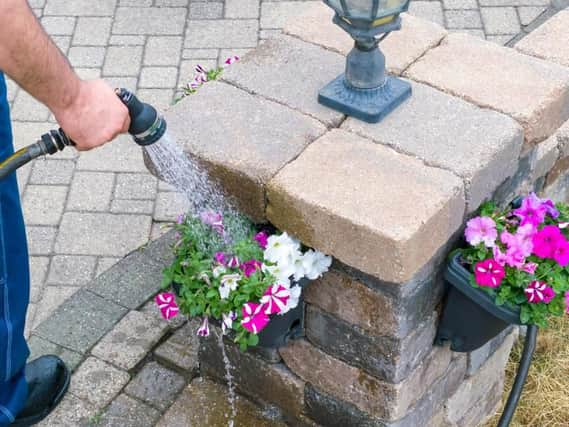This is what will happen if you break the hosepipe ban in Northern Ireland


Even if you do it innocently, wasting water during a drought can bring with it some serious consequences. Here’s everything you need to know about Northern Ireland’s first summer hosepipe ban in 23 years.
What exactly is a hosepipe ban?
Put into place during periods of hot weather to conserve water supplies, a hosepipe ban prohibits the use of hoses for all purposes.
Advertisement
Hide AdAdvertisement
Hide AdWatering your lawn, washing the car or other vehicles and filling a swimming pool, pond or fountain are all off limits across Northern Ireland.
What will happen if I break it?
According to the Water and Sewerage Services (Northern Ireland) Order 2006, any person found to be ignoring a drought restriction is guilty of an offence, and will be liable to pay a fine.
Why has the ban been put in place?
After an extended period of high temperatures and very little rainfall, NI Water has been left unable to treat water quickly enough to satisfy demand.
Homes in Lurgan and Coalisland have been left without water, or experienced low pressure. Isolated properties are particularly at risk.
Advertisement
Hide AdAdvertisement
Hide AdOn Sunday evening, NI Water said demand is still 30 per cent higher than normal, and asked the public to continue to reduce their usage.
Can I still water my plants?
The general public are still permitted to water their plants when necessary during a hosepipe ban by using a watering can.
Will businesses be closed?
According to NI Water, business customers have not been affected by the ban as they rely on water use for their livelihood. Some may also already have water efficient systems in place, such as metering or water recycling systems.